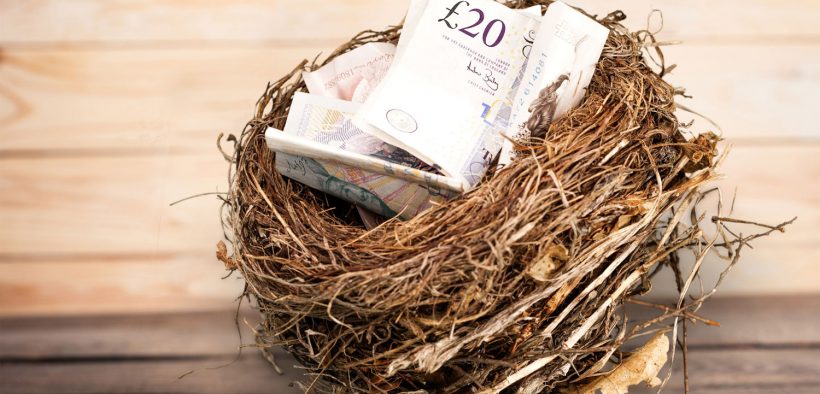FIND A NEST FOR YOUR EGG – WHAT TO DO WITH AN INHERITANCE

By Kay Hill
The peak age for receiving an inheritance is 55-64, when many people suddenly find themselves with money to invest. We look at ideas of how to put your windfall to work
According to the Office for National Statistics, the most common age at which to receive an inheritance is 55 and 64 years old, and people in this age group receive the largest inheritances on average1. So if you find yourself coming into money, what can you do with it?
Taxation
You don’t pay income tax on money you inherit. Any Inheritance Tax is the responsibility of the executor and is paid before money is given to the beneficiaries. You could find yourself liable for Capital Gains Tax if you inherit shares, or a property, and sell them for a profit of more than your annual CGT allowance of £12,300. If you gain interest, dividends or rental income from your inheritance you will be taxed on it.
Debts first?
A general rule of thumb is that if you are paying more in interest on debt than you could gain on your savings, then it makes sense to pay the debt off. But it also depends on your attitude to life and to risk – becoming mortgage-free is certainly less exciting than blowing it on a Porsche or a round-the-world cruise, and only you know what would make you feel happier and sleep easier!
Safe savings
The risk versus reward aspect of saving and investing is straightforward in theory, if harder than nailing jelly to a wall in practice. In a nutshell, the higher the potential gains, the higher the possible losses. Savings accounts are regarded as safe because you can’t lose your original funds – but the risk from inflation is very real. A “good” savings account might give you 1.2% interest a year, turning a £100,000 inheritance into £101,200 (on which you’ll pay between 0% and 45% tax depending on income.) However, assuming the UK inflation rate remains around 1.75%, by the end of that year, your £100,000 only has the buying power of £98,280 (there’s a calculator at www.rl360.com/row/tools/inflation-calculator.htm where you can get personalised figures). That means an effective loss of £520 even without being taxed!
Pensions
If you are working, and haven’t made any drawdowns from your pension, than investing a lump sum into a pension plan can be a good move. You can pay in up to your annual income or £40,000 a year, whichever is lower, and the Government will give you tax relief at your highest rate of tax. You should take advice if you’re planning to do this, as accidentally paying in too much can leave you with penalties and you’ll be restricting your access to the money.
Investments
Buying shares, or investing in them in a less direct way such as through a tracker, has historically seen better results over a 10-year period that cash savings. However, the risks are very real, as anyone who watched in horror as their pension pot fall by 30% in February will be only too aware. Take professional advice, spread your risks and be prepared for losses as well as gains if you plan on taking this route.
Property
You can invest in property by upsizing to a larger house – you will pay Stamp Duty on the purchase, but there’s no Capital Gains Tax on the sale of your main residence. Your bills, particularly Council Tax, will be higher, but you will enjoy a better standard of living while your home (hopefully) appreciates in value, keeping the nest egg secure. Alternatively, you could buy a rental property. This will incur higher rate Stamp Duty, and you will be taxed on the rental income, and on the gains when you sell the property. There are legal requirements involved in being a landlord, although you can pay a letting agent to take care of this for you. An average rental yield equates to around 3.5% a year return on your investment, but hopefully the property itself will increase in value as well. Professional advice is recommended.
1www.ons.gov.uk/peoplepopulationandcommunity/personalandhouseholdfinances/incomeandwealth/articles/intergenerationaltransfersthedistributionofinheritancesgiftsandloans/2018-10-30










Social Media